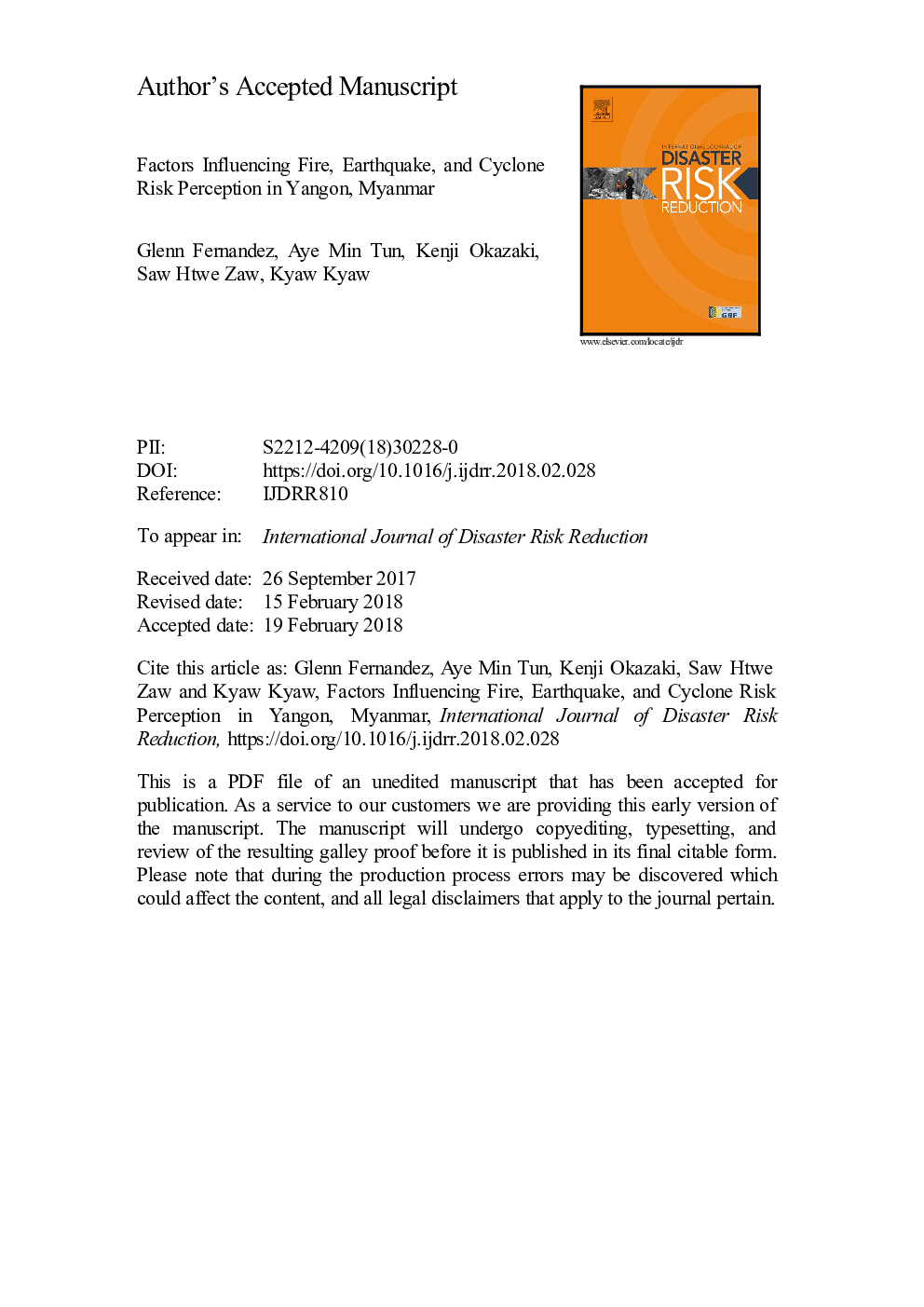| Article ID | Journal | Published Year | Pages | File Type |
|---|---|---|---|---|
| 7471494 | International Journal of Disaster Risk Reduction | 2018 | 28 Pages |
Abstract
This study investigated the factors that influence fire, earthquake, and cyclone risk perception in Yangon, Myanmar. In a survey, 199 respondents (85 males and 114 females, mean age 51 (SD 12), age range 17-80) rated seven risk perception items on a Likert scale of 1-5. Ordered probit regression was performed on the ratings and the socio-demographic and experiential factors of the respondents to determine if relationships exist between them. The Nagelkerke pseudo-R2 values of our ordered probit regression models range from 0.021 to 0.125. The results show that different sets of factors influence risk perception of fire, of earthquake, and of cyclone. One finding that is common across the three hazards is that none of the socio-demographic and experiential factors seem to influence the perceived ability to control the impacts of fire, earthquake, and cyclone. The results of this study can be used to fill in the gap in empirical risk perception research in Yangon and to encourage education campaigns necessary to enhance the residents' understanding of and preparedness for disaster risks.
Keywords
Related Topics
Physical Sciences and Engineering
Earth and Planetary Sciences
Geophysics
Authors
Glenn Fernandez, Aye Min Tun, Kenji Okazaki, Saw Htwe Zaw, Kyaw Kyaw,
